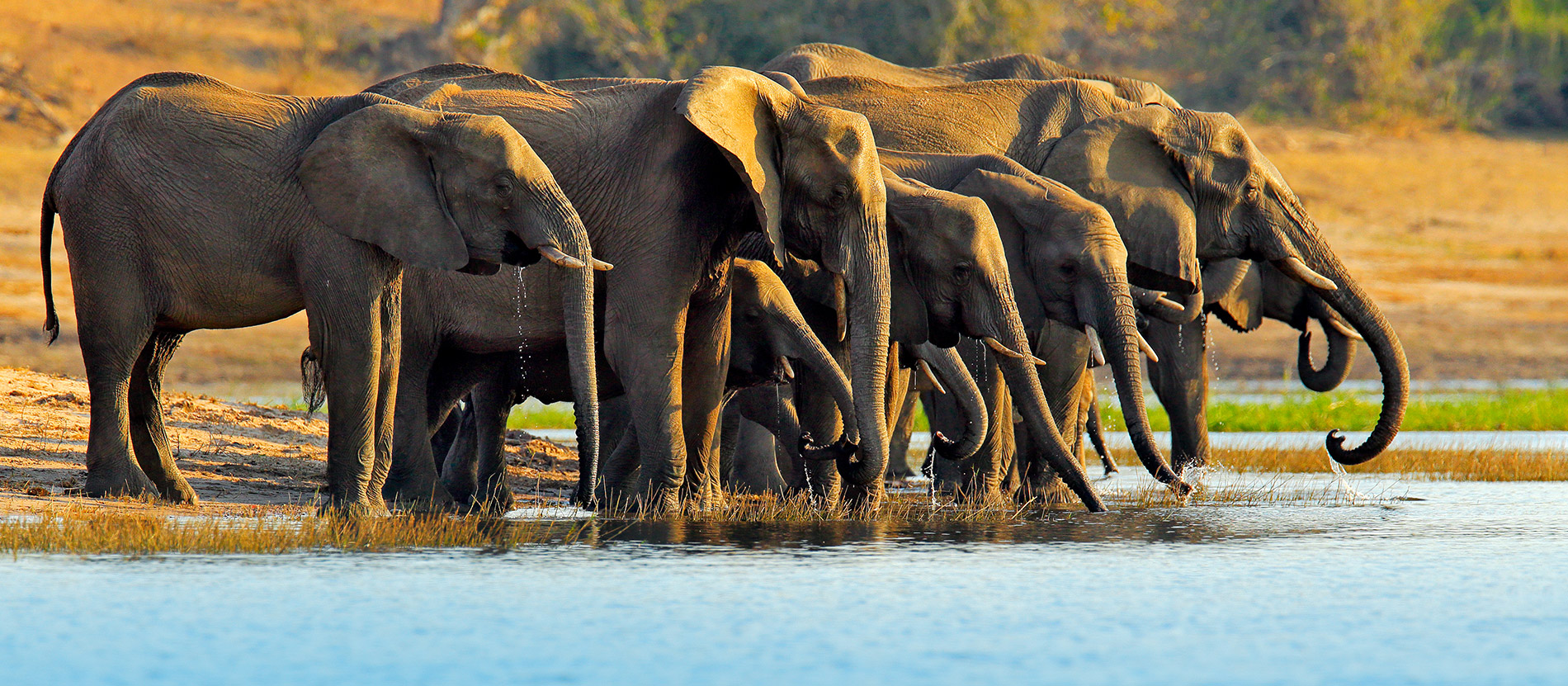Court Allows Kenyans in the Diaspora to Use IDs to Register as Voters
News Shorts You Will Not See Anywhere Else
A Nairobi court has ordered the Independent Electoral and Boundaries Commission (IEBC) to register diaspora voters using either national identity cards or valid passports.
The High Court issued the order on Monday pending the hearing and determination of a petition filed by activist Okiya Omtata against IEBC and the Attorney-General.
Through an internal memo dated February 1st, IEBC acting CEO Marjan Hussein Marjan asked voter registration personnel in the diaspora to comply with the court order.
“The purpose of this memo, therefore, is to direct you to comply with the court order by allowing every Kenyan citizen residing abroad to use either their valid passport or national Identity card to register as a voter,’ Marjan noted.
IEBC had earlier announced that only Kenyans with valid passports would be allowed to register as voters in the diaspora, locking out those with ID cards.
Diaspora voter registration is currently taking place in 11 countries including the US, Canada, the UK, Germany, the United Arab Emirates, Qatar, South Sudan, Burundi, Rwanda, Tanzania, Uganda, and South Africa.
IEBC Chairman Wafula Chebukati said diaspora voters will only be allowed to participate in the presidential election on August 9th.
Romania-Based Kenyan Doctor to Introduce Non-Invasive Facial Surgeries in Nairobi
Romania-based Kenyan aesthetic surgeon Dr. Maria Othieno Bayerl has announced plans to introduce non-invasive facial procedures to the Kenyan market.
Dr. Othieno, who lives and works in Bucharest, says opening a practice in Nairobi will make aesthetic procedures readily available and affordable to Kenyans.
“I plan to open a facility in Nairobi and work with beautiful Kenyan women. I am thinking of setting up shop and maybe once in four months I can be flying in with a team from Romania and do non-invasive facial aesthetic procedures,” she told The Standard.
A non-invasive procedure does not need the use of machines to physically break the skin. Dr. Othieno says the procedures she specializes in are meant to enhance one’s appearance while posing a very low risk of complications.
“The procedures I do do not alter appearance, they instead enhance one’s looks and they are non-surgical. They promote a youthful appearance with minimal downtime and low risk of complications,” she added.
The procedures include rhinoplasty, surgery of the nose commonly referred to as nose job; blepharoplasty, a procedure which improves the appearance of the eyelids; botox, a prescription medicine that is injected into muscles and used to improve the looks of wrinkles; and facial fillers or contouring, which are substances injected on the face to add or restore volume, smooth lines, soften creases and enhance contour.
“I am glad to be part of a system that contributes positively in creating a positive outlook no matter how small for a patient,” the medic added.
“The main goal of cosmetic procedure is to improve a person’s appearance, self-esteem, and confidence…”
Dr. Othieno, who grew up in Pangani, Nairobi, holds a medical degree from Carol Davilla Medical School in Bucharest, Romania.
Swedish-Kenyan Company Introduces First Africa-Made Electric Bus in Kenya
By John Wanjohi
Swedish-Kenyan Company Introduces First Africa-Made Electric Bus in Kenya
Swedish-Kenyan company Opibus has introduced the first African-designed and manufactured electric bus in Kenya as part of its efforts to bring clean energy to public transportation.
Opibus, which was the first company to make electric motorcycles in Kenya, plans to launch the bus commercially mid-this year and bring it to markets across Africa by 2023.
“I feel privileged driving this vehicle. It is also very amazing when you are driving this vehicle compared to fossil fuel vehicles, considering there is a lot of vibration on fossil fuel vehicles and also a lot of noise. But with this vehicle, it’s quite silent and very sleek,” said Benjamin Maina, one of the first drivers to drive the fully electric bus manufactured by Opibus.
The introduction of electric buses by Opibus is aimed at reducing carbon emissions in Nairobi and other African cities.
“This electric bus is really (an) important first step in the transition from fossil fuel vehicles to electric clean mobility. And I think we are really showing precedence being the first movers in this market with a bus that is even locally developed,” said Albin Wilson, the chief of strategy and marketing at Opibus.
Christopher Maina, a resident of Nairobi, spoke about his experience as a passenger riding on an electric bus.
He said: “This ride today is one of its own, having ridden on an electric vehicle. It’s just cool, no noises like the combustion engines, there are no smells like the combustion engines. So, it’s just cool and awesome to be in this vehicle.”
The automobile company is testing 10 of its buses in Nairobi to ensure that the product is optimized to the requirements of the region.
Tanzanian Fintech Raises $10 Million, Plans to Enter 12 More African Countries
A Tanzanian fintech startup revealed it has raised $10 million in its latest funding round and is planning to use the funds to finance an expansion into other African countries.
Fintech Plans to Enter 12 More Countries by Year’s End
The Tanzanian fintech behind an app that enables payments from the U.K. to Africa, Nala, recently revealed it raised $10 million in a funding round backed by Amplo, Accel, and Bessemer Partners. So-called angel investors that participated in this round include the founder of Robinhood, Vladimir Tenev, and Jonas Huckestein, CTO at Monzo.
According to a report published by Fintechnews Africa, the fintech app already enables payments from the U.K. to five African countries: Tanzania, Kenya, Uganda, Rwanda, and Ghana. However, following the latest fundraiser, Nala will have added twelve more African countries by the end of 2022, according to the report.
The publication also revealed that Nala has just begun piloting a version of its app suited for business people who wish to make payments to Africa. In addition to this new feature, the app already comes embedded with a multi-currency accounts function which allows users in the diaspora to store local African currencies when abroad, the report said.
Cost of Sending Funds to Africa
Meanwhile, in his comments following the fundraiser, Nala co-founder and CEO, Benjamin Fernandes, explained why his firm chose to build this app. He said:
“Payments in Africa are 1% build. It’s 2022 and Africa’s still the most expensive place in the world to send money in and out of, until this changes we are limited by the opportunities of trade across the continent. Over the next 5 years, while logistics gets better, more places around the world are going to trade in and out of Africa, we are positioning ourselves to be at the forefront of this change.”
Antigua PM Urges U.S. To Increase Financing And Aid To The Caribbean
If the United States wants to reduce the number of refugees from the Caribbean attempting to cross its borders, its government must pay more attention to the needs of the region, the Prime Minister of Antigua and Barbuda said.
In a telephone interview with Reuters, Prime Minister Gaston Browne said that the U.S. can help the Caribbean with financing and aid to assist the region in recovering from the blow of the pandemic and the gradual debilitating effects of climate change.
“I feel that the U.S. ought to pay more attention to the Caribbean region in helping us to maintain our standard of living to avoid any mass movement of people,” the Antigua PM said. “If people are unable to live in (Caribbean) countries, then clearly they’ll end up on the shores of the United States as refugees.”
Several Caribbean countries are struggling with “unsustainable debt loads,” which according to the Reuters report is equivalent to 100 percent of each country’s gross domestic product (GDP).
Countries hesitate to request loans from multilateral financial agencies such as the International Monetary Fund (IMF) because the terms and conditions they give are not that favorable.
Browne revealed that a lot of countries had difficulties with loans because multilateral agencies tend to classify them as “middle- or high-income nations,” basing this criteria on per-capita GDP measurements. This does not count in the bigger costs a small island nation is facing because of climate change.
That is why a lot of the Caribbean governments turn to banks from China, which give more leeway with their policies, Browne explained, and therefore borrowing from Chinese banks should not be taken as a political statement.
If the U.S. can put in a word to these agencies to change their criteria, it would provide a significant boost for the Caribbean. “We expect the United States would use its influence in the multinational financial institutions to effect that change,” Browne said.
According to the Washington-based Inter-American Dialogue that was cited by Reuters in their article, China has lent over $4 billion to Caribbean nations in the last 10 years. Most of the aid went to infrastructure development.
The U.S. has some $336 million to the Caribbean Community, but a huge portion of it goes immediately to Haiti. Around $70 million is left and this will still be distributed among 13 other countries, Browne said.
“The U.S. State Department did not immediately reply to a request for comment,” Reuters disclosed.
Organization Of Eastern Caribbean States Statement On Cuban Medical Support
The Organization of Eastern Caribbean States (OECS) expressed its deep appreciation to the Republic of Cuba for the medical support provided to six (6) member countries of the Organization to assist with efforts to combat the spread of the novel Coronavirus (COVID-19) pandemic in the OECS and wider Caribbean region.
The provision of specialized health care through the Henry Reeve International Medical Brigades has not only augmented the scarce medical resources of OECS Member States but has provided assurance to the general populations of the region’s capacity to fight and manage COVID-19. Four hundred and seventy-three (473) Cuban medical personnel are working alongside their Caribbean counterparts in eight countries (Antigua and Barbuda, Barbados, Commonwealth of Dominica, Grenada, Jamaica, St. Kitts and Nevis, Saint Lucia, and St. Vincent and the Grenadines) to assist in managing the spread of COVID-19.
Cuba’s support of the health sector in the Caribbean has a long and exemplary history that has benefitted numerous Caribbean citizens. One noted invaluable assistance to the region is “Operation Milagro” – a program that provides free eye medical treatment to OECS nationals requiring interventions to prevent blindness or to restore vision. These conditions include cataracts, diabetic retinopathy, and other reversible types of visual impairment. The OECS acknowledges with gratitude the extensive global contributions of Cuba, particularly in the fields of health and disaster management, despite its material limitations and the economic hardships resulting from US-imposed sanctions.
The Organization notes with deep concern and repudiates the recent bill introduced by Republican Senator Rick Scott which classifies Cuba’s humanitarian assistance as “human trafficking” and seeks to extend punitive measures against countries accepting this medical assistance.
The OECS Authority greatly values the work of the Henry Reeve Medical Brigades and has reiterated its desire to work with All friendly Governments that offer tangible support in the face of the grave existential threat posed to lives and livelihoods in the small island states of the Caribbean.



